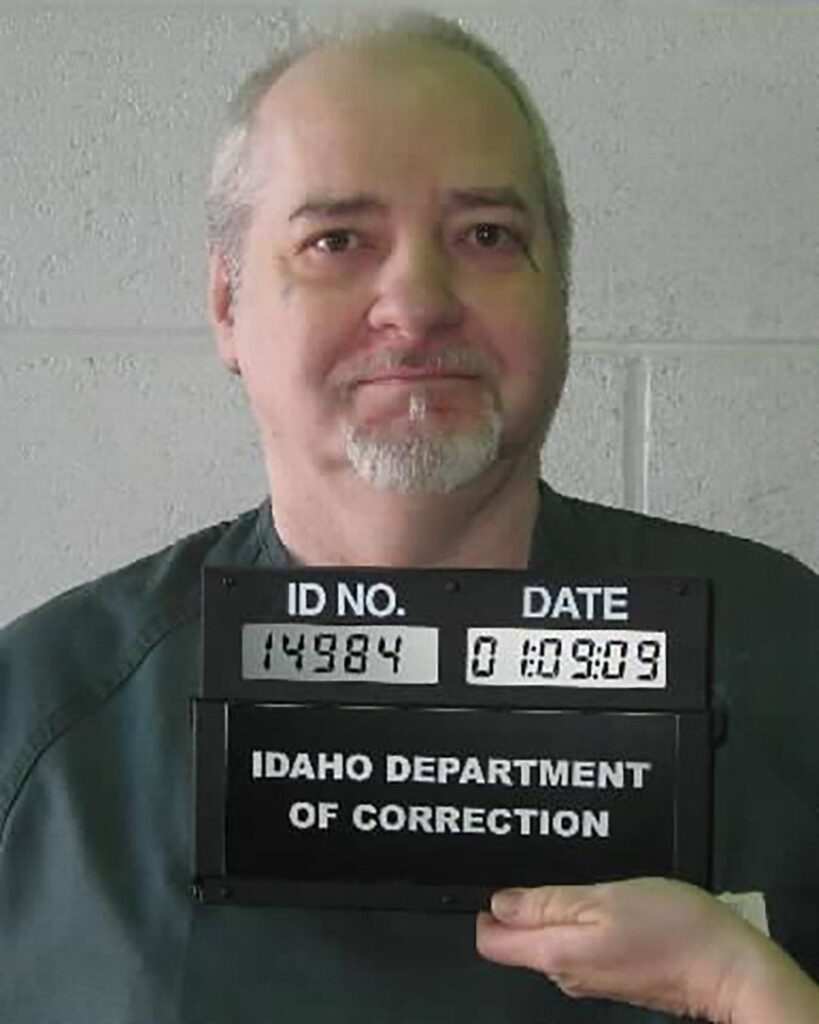
The attempt by Idaho to execute death row inmate Thomas Creech, aged 73, was stopped one hour into the planned lethal injection because prison officials couldn’t find a vein for the IV, according to the Idaho prison system.
Creech’s execution began at 10 a.m. but was halted at 10:58 a.m. His death warrant expires just before midnight Wednesday, and it will be allowed to lapse, said Josh Tewalt, director of Idaho Department of Correction.
“At approximately 11 a.m., Director Tewalt, after consulting with the medical team leader, determined that the medical team could not establish an IV line, rendering the execution unable to proceed,” the department said in an email. “Mr. Creech will be returned to his cell and witnesses will be escorted out of the facility. As a result, the death warrant will expire. The state will consider next steps.”
[adinserter name="Three"]Gov. Brad Little, who previously stated he wouldn’t intervene to stop Creech’s execution, supported IDOC’s decision.
“IDOC officials are experienced and well prepared for a variety of situations that can arise during lethal injection execution,” Little said in a statement. “The team of professionals at IDOC was prepared for the possibility that medical professionals would not be able to access the inmate’s veins, a circumstance that has occurred in execution procedures elsewhere in the country.
[adinserter name="Four"]“The competent and qualified medical professionals present and IDOC officials were cautious and did the right thing in not moving forward with the execution. My office will remain in close communication with IDOC about next steps.”
Following the failed attempt, Creech’s attorneys with Federal Defender Services of Idaho labeled the lethal injection as “botched.”
[adinserter name="Five"]“We are angered but not surprised that the state of Idaho botched the execution of Thomas Creech today,” Deborah A. Czuba, supervising attorney of the nonprofit’s unit that oversees death penalty cases, said in an emailed statement. “This is what happens when unknown individuals with unknown training are assigned to carry out an execution.”
[adinserter name="Two"]Tewalt and media witnesses explained at a press conference that the execution team unsuccessfully tried eight times to access Creech’s veins, including his right arm, right hand, left arm, and left leg.
[adinserter name="Six"]“This is precisely the kind of mishap we warned the state and the courts could happen when attempting to execute one of the country’s oldest death-row inmates in circumstances completely shielded in secrecy despite a well-known history of getting drugs from shady sources,” Czuba said. “The state called Mr. Creech’s worries ‘patently absurd’ in its motions to the U.S. Supreme Court. Unfortunately, what is absurd is Idaho’s continuing efforts to kill this harmless old man, who by this point surely has suffered enough.”
[adinserter name="One"]Creech, the state’s longest-serving death row prisoner, was sentenced to death in both Idaho cases preceding his convictions in other states. He was denied a reduced sentence to life in prison by the parole board, leading to the scheduling of his execution for Wednesday.
[adinserter name="Seven"]On the eve of his planned execution, Creech spent time with his wife and had his last meal. On Wednesday before the attempt, he met with his religious adviser. He was cooperative leading up to the execution, allowed a sedative, and was escorted to the execution chamber at 10 a.m.
Three members of the execution team made eight unsuccessful attempts to establish an IV. Creech was strapped to a mattress on a metal frame, surrounded by witnesses including state officials.
[adinserter name="Eight"]Idaho Statesman opinion editor Scott McIntosh, one of the media witnesses, contributed.



